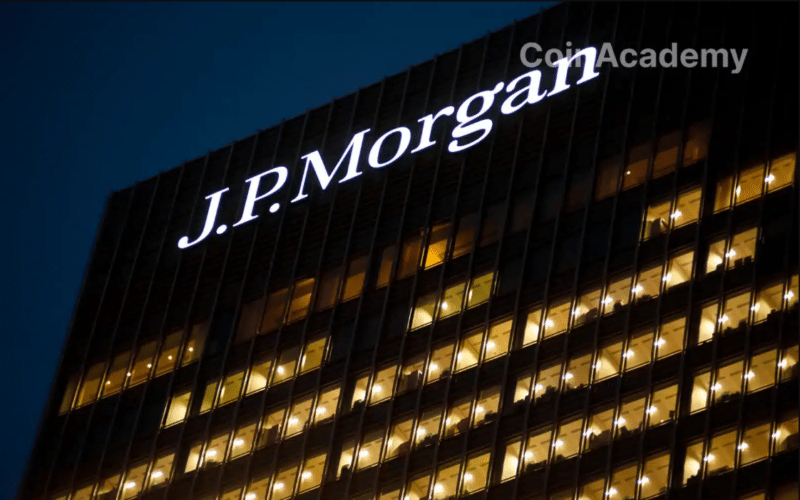The frenzy around the adoption of blockchain and crypto currencies by institutions continues. The banking sector is obviously no exception. The French bank, BNP Paribas, has just announced its collaboration with the American bank, JP Morgan, to integrate the blockchain developed by the latter in December 2020.
Indeed, JP Morgan has developed a blockchain-based network allowing the exchange of value for different types of digital assets through short-term asset lending. This infrastructure has generated over 300 billion transactions since its launch. Called Onyx Digital Assets, it offers, for example, the possibility for banks to lend government bonds for a few hours as collateral, without the bonds leaving their balance sheets.
This possibility is important, especially since the 2007 crisis. Indeed, banks need to hold large amounts of liquid assets to ensure their financial stability. Among these assets, US treasury bills are particularly popular for their apparent safety.
Thanks to the network set up by JP Morgan, banks can convert these assets into tokens and use them as collateral for a short period of time. The token represents a digital version of a bond that borrowers can then exchange for cash. This technique allows a bank to operate in the market without reducing its security reserve, which is checked daily.
The entire transaction is managed by a smart contract in which the duration of the loan and the settlement time are specified. This smart contract ensures that the money used is actually in the borrower’s account and that the collateral is released at the end of the loan.

BNP Paribas partners with JP Morgan to develop its interest in blockchain
The partnership between the two banks should enable the French bank to use blockchain and crypto currencies in one of the most influential networks in the global financial system. Indeed, the blockchain is already used by investors to borrow high quality assets, but also by central banks to conduct monetary policy.
Joe Bonnaud, Chief Operating Officer and Head of Engineering at BNP Paribas, mentions two main use cases for the bank. Firstly, securities financing is expected to play an important role in this system. Secondly, BNP wants to use this network to use interday repos.
He says “this is not just a desire to do a proof of concept, indeed we see it as part of our efforts to use blockchain technology for the whole life cycle of operations and transactions as the market evolves.
Banks and financial institutions strongly attracted to blockchain and crypto-currencies
It must be acknowledged that the network offered by JP Morgan is attracting more and more financial players. Indeed, European, British and Asian banks and clients have been joining Onyx Digital Assets for some time.
JP Morgan is certainly one of the most advanced banks in its field in relation to the use of blockchain and crypto currencies. Indeed, JP Morgan already offers a bank card service allowing the exchange of crypto-currencies and has launched, since mid-February, in the NFT and metaverse ecosystem.
It is therefore not surprising that the head of Onyx Digital Assets, Tyrone Lobban, explained JP Morgan’s intention to explore the possibility of using its blockchain payment infrastructure as a gateway to DeFI for institutional investors.
The entire transaction is managed by a smart contract in which the duration of the loan and the settlement time are specified. This smart contract ensures that the money used is actually in the borrower’s account and that the collateral is released at the end of the loan.




